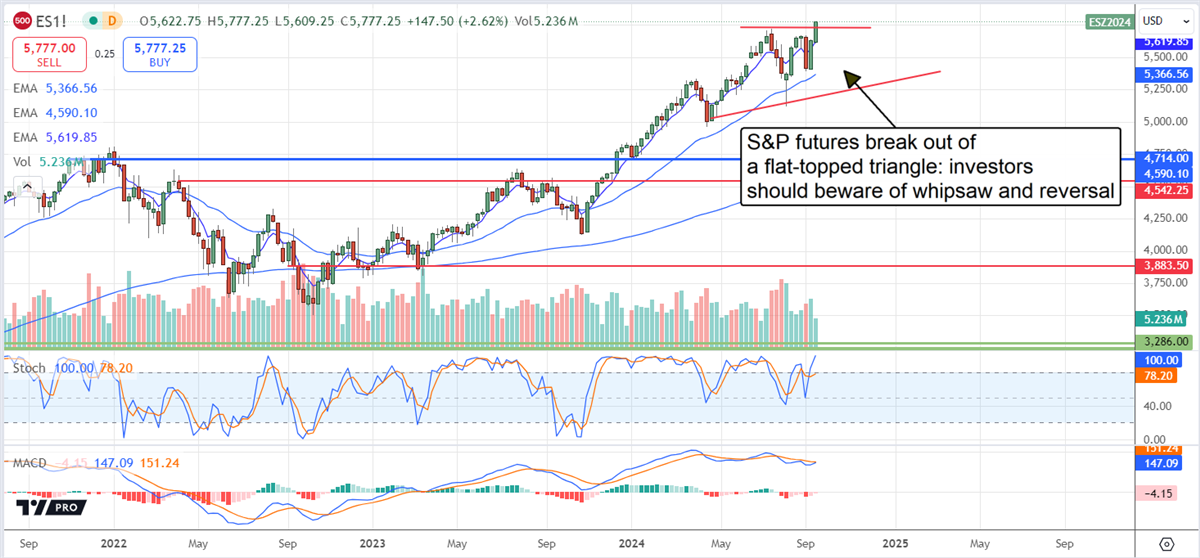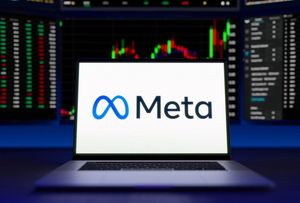
The FOMC gave the market what it wanted: a 50-basis point interest rate cut and an outlook for aggressive cuts to continue through the end of next year. As good as the news is, the outcome is that there is as much uncertainty about the future as there has been all year and a rising risk of heightened stock market volatility.
The initial reaction was mixed but led to a higher high and an all-time high for the S&P 500 (NYSEARCA: SPY) the following day, signaling that the rally in equities is still on. However, the market isn’t out of the woods because the potential for recession has increased. The FOMC cut rates aggressively because the balance of risks has come into alignment, which means the risk of higher inflation is down, but the risk of labor market weakness and recession is increased.
The risk of increased labor-driven recession is seen in the Fed’s outlook for unemployment, which is up 40 bps from the June forecast and may continue rising due to softening labor market data. The takeaway is that the Fed is still walking its tightrope with inflation on one side and recession on the other; volatility will remain elevated.
The Market Is Heading for One of Two Potential Outcomes
Did the Fed’s aggressive 50-basis point rate hike take one of three possible economic outcomes off the table: sticky inflation, higher-for-longer interest rates, and rising risk of an economic recession? The aggressive cut and forecast for more aggressive cuts this year signals that inflation isn’t as big a problem today as it was, but labor market weakness is. The pace of cuts will either accelerate the expected economic shift and shorten the time to a broadening stock market rally (thereby sustaining demand and inflation), or it is trying to front-run a labor-led recession caused by holding rates too high for too long.
In either case, volatility will likely remain elevated due to sector rotation and flight to safety. The question is how the subsequent economic data unfolds and what that means to the market. Assuming the data continues to cooperate, the equity markets will likely move sideways within a range, with upticks offset by downticks as sector rotation continues. If not, the market will soon top out and sell off in earnest as recession fears peak.
Economic Data Is Solid; Demand Is Present
Generally speaking, despite spottiness, the economic data is solid and shows demand within the economy. The Atlanta Fed’s GDPNow Tool shows Q3 GDP tracking at the highest levels all year at nearly 3% and more than double the full-year forecast at the year’s start. With now lowered rates, it is unlikely that GDP growth or consumer demand will slow enough to allow inflation to cool sufficiently to enable the Fed to continue with its forecasted pace: the market will likely be disappointed later in the year.
The threat of persistent inflation is seen in the oil price. The oil price fell to a long-term low over the past month but hit bottom, confirmed support, and is now heading higher on easing headwinds and improving demand. Oil prices don’t have to rise much above their current levels to increase inflation; they only have to hold steady for inflation to hold steady and ensure that consumer-level inflation remains sticky.
Market Rises but Expect Whipsaws and Reversals
The S&P 500 is rising after the FOMC decision and may continue to rise in the near-term, but investors should expect whipsaws and reversals over the coming weeks. There is risk in the economic data and the upcoming earnings season, which may result in a diminished outlook for Q4. As good as the fifty basis points cut seems, it will take months to appear in the economic data and is likely already priced into the market.






